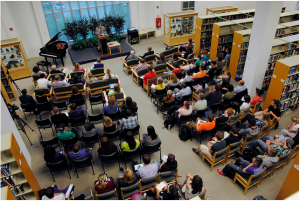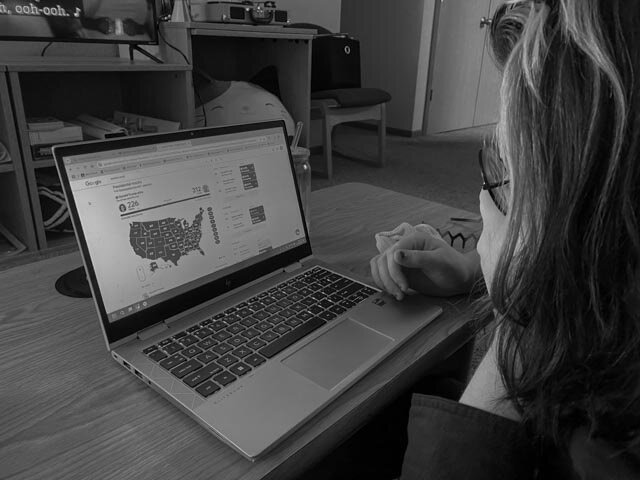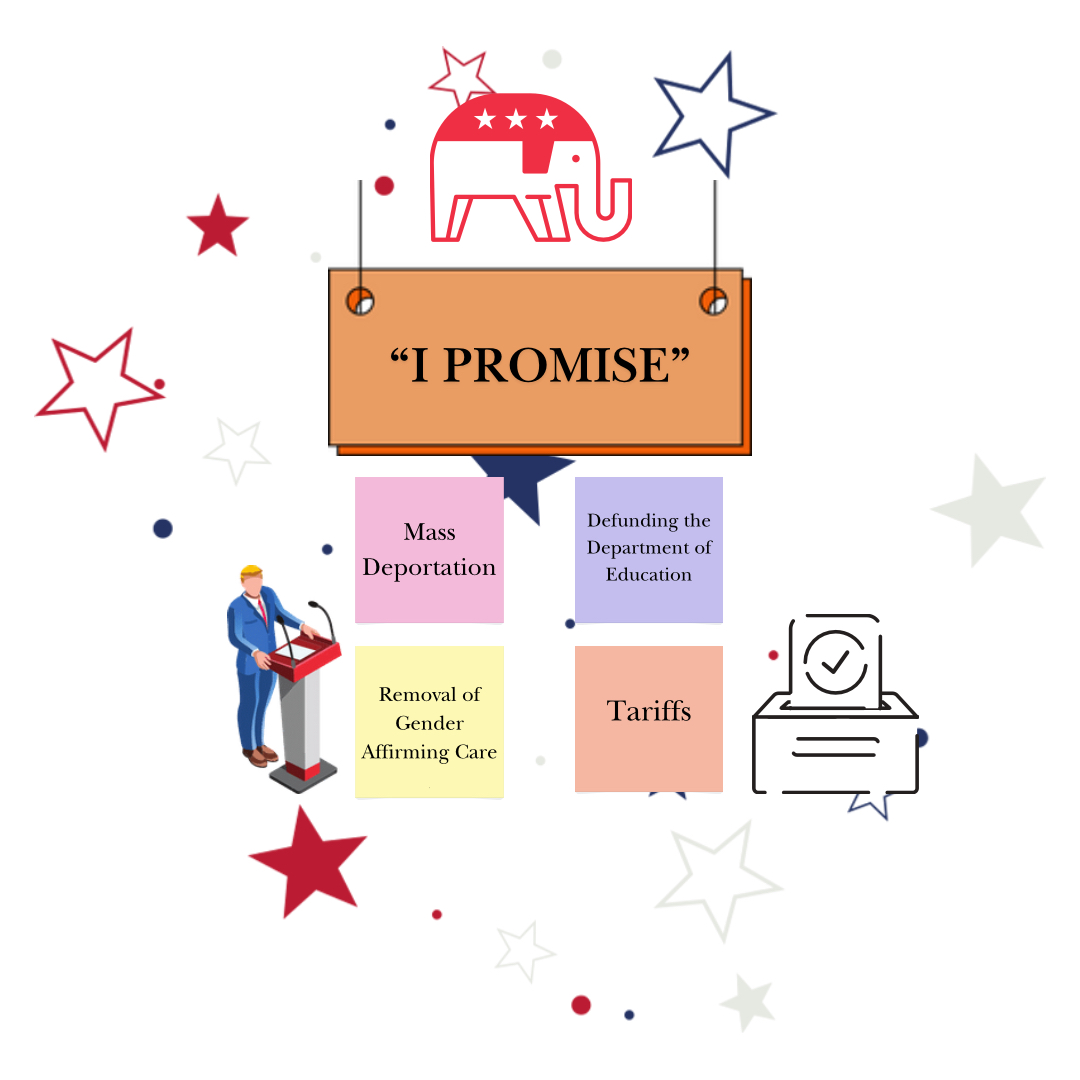
Cara Mannino/Winonan
Rebecca Mueller/Winonan
Winona State University President Scott R. Olson kicked off the fall 2012 weekly Athenaeum series at 1 p.m. Sept. 12 with his presentation entitled “What Digital Technology Means (And Doesn’t Mean) for Learning.” “I’m here as a curious person who thinks about these things,” Olson said after the presentation.
Thomas Bremer, dean of Library and Information Services, explained that the origin of the Athenaeum is the temple of the Greek goddess Athena, which was considered a place of knowledge. The purpose of Winona State’s Athenaeum presentations is to hold discussions and share knowledge and ideas.
Olson’s goal for his presentation was not to deliver a policy speech as the president of the university, but to hold a discussion about technology and learning.
During the presentation itself, Olson focused on two main topics: technologies that claim to revolutionize learning, and the democratization of content.
“Invention often wants to be the mother of necessity,” said Olson at the beginning of his presentation.
He explained that technologies are often created in order to have a need, rather than to fill an existing need.
Olson recalled technologies such as speed readers and Channel One, which offered to improve students’ reading speeds and create well- informed individuals. These technologies were not proven to be as effective as they claimed to be.
In another example, the One Laptop Per Child project provided children in Rwanda with laptops with internet access.
Although these children had access to resources, they were not learning effectively on their own. Olson related that the higher priority should be teacher training, rather than seeking the newest technology.
In the digital age, authenticity is often called into question thanks to the existence of technology such as Photoshop and the Internet. By altering the right pixels in Photoshop, reality appears to change on the computer screen. Additionally, anyone can create and upload content that can be accessed globally via the Internet.
In the classroom, academic integrity and authenticity also come into question. It is now possible to paste together pieces of other people’s work and label it as original content without citing the original creators. This is academically unacceptable, although Olson noted that a similar phenomenon occurs frequently, and acceptably, in pop music.
Olson argued that it is important to consider the ethical use of existing content and define what constitutes plagiarism in the digital age.
To close his presentation, Olson argued that technology should be used to advance current knowledge about learning. He emphasized that learning should be the highest priority.
Those in attendance were engaged in the discussion and enjoyed the casual atmosphere of the presentation.
“You didn’t really get the feeling that he was the president,” said sophomore Emily Gust, who thought that the presentation felt very conversational.
Prior to becoming Winona State’s fifteenth president, he was an executive producer of a television documentary about digital technology and learning called “Squeakers” in 2002.
The Athenaeum series takes place most Wednesdays at 1 p.m. on the south side of the second floor of the Darrell W. Krueger Library.
Contact Rebecca at [email protected]












































